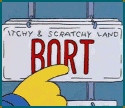|
i say swears online posted:isn't colombia held up as the gold standard for clear, intelligible accent? Colombian people try to yeah
|
|
|
|

|
| # ? Jun 6, 2024 10:14 |
|
I don't remember whether Chilean or Argentinian spanish is supposed to be the weirdest New World Spanish out there, but I know one of them is.Gravitas Shortfall posted:That's not actually true. Virginia yes, West no, hills no. Weird lil island. There's a couple weird island linguistic enclaves on the east coast. https://www.youtube.com/watch?v=AIZgw09CG9E Maybe some west virginian enclaves are like that, but I don't know anything about them. There are a lot of very, very old surviving dialects in Britain that have remnants from even before Shakespeare's time, but I think most of those come from a lot of other influences rather than being just mainstream nationwide English that got cut off from the rest. If you want specifically isolated speakers of mainstream seventeenth century english, I think America's gonna be your best bet.
|
|
|
|
SlothfulCobra posted:Virginia yes, West no, hills no. Weird lil island. There's a couple weird island linguistic enclaves on the east coast. You can hear a lot of West Country in that accent, crazy. I wonder how much of that still exists.
|
|
|
|
Air Skwirl posted:No idea about Colombian Spanish in particular, but that's the way being a colonial power works. There's way the gently caress more people in India that speak English than there are people in England that speak English. Weird comparison, since the number of native speakers of English in India is very small. West Africa would be a better example, since English-based pidgins are the first language of millions of people there.
|
|
|
|
SlothfulCobra posted:I don't remember whether Chilean or Argentinian spanish is supposed to be the weirdest New World Spanish out there, but I know one of them is. I do think it's worth saying that the idea that these enclaves are older versions of English is misleading. The other formulation of this you'll sometimes hear is that these accents (sometimes, all american accents) are closer to how people used to speak English than modern English in England. The truth is that no community is a true fossil, even without outside influence each generation innovates slightly on the language of their parents and pronunciation changes over time. Intermingling of people can accelerate that process, but I don't think the people of Tangier strike me as particularly unusual in that regard. The place maintains its distinctiveness due to its isolation, but there's no concrete reason to assume that if we could travel back to the 18th century and find a rural English village with a colonist heading to Tangier*, that the 21st century Tangierine(?) would sound more similar to the colonist than the 21st century inhabitants of their old village. More likely that they will have both diverged significantly, but each one will retain different features of the 18th century speaker's original accent. *Worth also noting that while the people of Tangier sound kind of West Country in their accent, there's precious little evidence that their accent is actually due to the colonists having originated from there.
|
|
|
|
Ras Het posted:Weird comparison, since the number of native speakers of English in India is very small. West Africa would be a better example, since English-based pidgins are the first language of millions of people there. The Philippines. American colonialism and soft power was strong enough not just to displace Spanish as a language, but also to become a second lingua franca within the country
|
|
|
|
Offler posted:Even within England itself mutual intelligibility can break down thanks to accents. Here's an English reporter interviewing a guy from Liverpool, and you can't convince me he understood a thing of that last sentence. He just hoped the Scouser said something funny and did a hesitant laugh just to react in some way. One guy speaking nearly unintelligibly doesn’t mean the accent is difficult to understand, it means he has a speech issue. The Beatles are from Liverpool, for example. The guy in that video is more like saying Americans are hard to understand and then linking a video of Kenny from South Park. I don’t mean to imply that there aren’t major dialects in English that can be hard for native speakers to understand, but Liverpool is not one of them.
|
|
|
|
The UK is full of people who don't articulate their speech clearly but they manage to communicate with each other. If you have a city full of people doing that then that's the accent, just cos some people have lighter versions of it doesn't mean the heavy version isn't real .
|
|
|
|
Also, the Beatles were all from the south end of Liverpool, this guy's from northern Merseyside. Within a small area you can see fairly large accent differences due to age, class, neighbourhood etc. Like, the video I posted before of the Glaswegian giving directions sounds perfectly comprehensible to me, but even though we're both Glaswegians, my accent is much closer to Standard Scottish English and much more intelligble to outsiders. (Though to be honest I understood pretty much all of what Jamie Carragher was saying in the football interview too, the part that can trip you up is when he says "we used to go to the Vernon Sangster [Sports Centre]" which if you're not familiar with the place sounds like gobbledygook and can make you lose your grasp on the whole rest of the sentence) Reveilled fucked around with this message at 14:11 on Mar 18, 2024 |
|
|
|
Reveilled posted:I do think it's worth saying that the idea that these enclaves are older versions of English is misleading. That's true, this is a logical fallacy you see quite often both in linguistics and biology*, where in the latter you will have people claim that one particular species is 'older' than another. They're all the exact same age; every form of life on Earth that we know of descends from the same common ancestor that lived 3.7+ billion years ago, anything else used to rank species according to this criterion is completely arbitrary. What you can say is that, due to similar selective pressures, a particular species is morphologically (still) similar in one way or another to an archaic form that existed millions of years ago, but even then it will inevitably be very different genetically, due to various processes including simple genetic drift. To bring it back to linguistics, it's possible that certain dialects are more similar to their predecessors from 400 years than others in a specific way, but language is in constant flux, it evolves from generation to generation, so I would agree that true linguistic time capsules don't exist. * I don't think SlothfulCobra was doing this, to clarify, it's just a claim I see made from time to time in news articles and the like. Phlegmish fucked around with this message at 14:37 on Mar 18, 2024 |
|
|
|
Why does England have so many accents at this point? It's a pretty small island all things considered, and mass media has been around for a while. Having a different accent on an isolated small island or a large geographic difference is one thing but across the street seems so weird to me. Is it just a cultural thing to preserve how their parents spoke? I remember I once called a company in Scotland to order a book that was printed there, and the woman answered with a full-on Scottish accent I couldn't understand. The minute she heard me speak in a mid-Atlantic American accent she switched to a more generic British sounding speech. I can put on a southern accent because of where I was raised but TBH I don't like to do it. Is it like the opposite over there, where they can put on the more generic accent, but they don't like it?
|
|
|
|
Ras Het posted:Weird comparison, since the number of native speakers of English in India is very small. West Africa would be a better example, since English-based pidgins are the first language of millions of people there. Really? I actually thought it was quite similar to India, where people mostly use their ethnic or tribal language to communicate among themselves in daily life, switching to the lingua franca (which can also be Hindi in India) in more formal settings or to communicate with members of different communities. I didn't know it had millions of first language pidgin -> creole speakers. Is it a specific country, Nigeria, Ghana, etc. or scattered everywhere?
|
|
|
|
It was mentioned earlier that languages have more variation closer to the point of origin or cultural center. There's a theory in linguistics that a people on the move innovate less, linguistically. It is most perfectly demonstrated by the Austronesian language family. The most agreed upon classification of Austronesian gives 10 first-order subgroups within the family. 9 of them are on Taiwan, where the family originated. All the others, from Easter Island to Madagascar, are a single subgroup. 
|
|
|
|
That theory is so counterintuitive to me but very interesting. I would have thought a language would need to change when the people were introduced to new concepts travelling. I meant at this point though, why are they still using those accents so heavily? Or is it starting to homogenize, just more slowly because there were so many different accents in the area where the language originated?
|
|
|
|
gurragadon posted:Why does England have so many accents at this point? It's a pretty small island all things considered, and mass media has been around for a while. Having a different accent on an isolated small island or a large geographic difference is one thing but across the street seems so weird to me. Is it just a cultural thing to preserve how their parents spoke? If you live in a place with lots of other people who all talk the same why would you change unless you had to? My accent is kind of all over the place for the UK because I went to college with a bunch of people with fairly posh accents and also I used to read a lot in school and a lot of the words I read just weren't in the lexicon of my local accent, so I ended up developing a vaguely BBC pronunciation of them out of necessity, cos I was never exposed to them in speech from the people around me. But when I worked near home I used to sound more like where I'm from cos everyone else did too. That's just how everyone talks. Now I work all over the place the accent's dislocated a bit again (and also I have to try to understand geordies which is a nightmare) The UK I would wager is also a lot more localized than the US. People usually work more or less in the city they live in, and a fifty mile commute is "the next city over" and considered a long commute rather than just normal for the US. We could travel around but people just don't I think. And the less money you have the less able you are to travel as well, and that's usually where you get the strongest accents too, cos higher ed hasn't beaten it out of you.
|
|
|
|
Im sure its a pretry normal commute for a lot of people in london, tbf, but i get what you mean.
|
|
|
|
Reveilled posted:
Yeah, sometimes comprehension just depends on sharing the same reference pool. Here's a comedic take on how confused American guests on British chat shows often look when the British guest talks directly to the host. Someone in the comments provided a "translation", so even though it's exaggerated it's not using made up giberish or anything. https://www.youtube.com/watch?v=dIA19WdZqys
|
|
|
|
gurragadon posted:Why does England have so many accents at this point? It's a pretty small island all things considered, and mass media has been around for a while. Having a different accent on an isolated small island or a large geographic difference is one thing but across the street seems so weird to me. Is it just a cultural thing to preserve how their parents spoke? I don't know this woman personally but yes, probably. Unlike you and your Southern US accent, that's presumably just how she has always talked in daily life, surrounded by other Scottish people from that part of Scotland who do the same. That's her 'natural', native accent, and she only makes an effort to switch when communicating with outsiders. Mass media have been around for a while, yes, but you still have to keep in mind that the full penetration of things like cable television was relatively recent, mobility is unprecedented compared to even half a century ago, and compulsory education until the age of 14-18 years has only been a thing for a few generations in most countries. Most of these leveling influences simply have not been around for that long in the grand scheme of things. One of the reasons that French was able to effortlessly dominate 19th-century Belgium is that the Dutch dialects in Flanders diverged wildly from each other, compounded by the fact that the main Dutch dialect groups stretch north-south rather than west-east, to the point that they were barely mutually intelligible (and in fact even Walloons mostly spoke Walloon and Picard rather than Standard French in 1830). There was no standard variety at the time of independence, the decision to adopt Standard Dutch wholesale from the Netherlands was only made in the mid-19th century. This is a region that had less than five million people at the time, so I don't find it difficult to believe that English in the UK, which is an order of magnitude larger, came to be so diverse over time. Most of the traditional dialects have only started dying off quite recently in Flanders, due to the leveling influences I mentioned earlier. It is now strongly sociologically correlated with age and social class, where the older and the more working class you are, the more likely you are to speak the local dialect. The bulk of the population (outside of the province of West Flanders where their traditional dialect is still widely used in daily life) now speaks Standard Dutch with a more or less heavy regional accent depending on where they're from. We somewhat disparagingly refer to this as 'tussentaal' ('in between language') or 'verkavelingsvlaams', which could be translated as 'allotment Flemish' (allotments for building homes specifically), based on the tendency for upwardly mobile suburbanites to look down on dialect, but also reject Standard Dutch for being too 'artificial' and snobby, and so ending up somewhere in between. Phlegmish fucked around with this message at 15:18 on Mar 18, 2024 |
|
|
|
gurragadon posted:Why does England have so many accents at this point? It's a pretty small island all things considered, and mass media has been around for a while. Having a different accent on an isolated small island or a large geographic difference is one thing but across the street seems so weird to me. Is it just a cultural thing to preserve how their parents spoke? It's not really a deliberate thing. Mass media has an effect, but if you think about it there's two key periods where you're really fleshing out your speech, which are when you are learning your first words and then when you first start attending school and interacting with other children. In both cases you don't really spend that much time interacting with mass media, and children seem to prioritise copying their parents and peers over copying the cartoons they are shown. Kids will experiment with copying Peppa Pig or Paw Patrol, but unless their parents and peers reinforce those experiments (and they usually don't), they don't stick around. You can lose an accent over time of course but by the time a child is 6 or 7 their accent is pretty well established, and where the accent of the parents and peers conflict, usually the accent of your peers wins out. See the current First Minister of Scotland Humza Yousaf as an example. Within the UK at least, unless you go to a boarding school, the school where you meet your peers is likely to be within walking distance or a very short car/bus journey, so your peers tend to be from a very close geographic area, so that's the accent you're going to pick up. And ultimately the way you speak says a lot about you. I'm assuming the person on the phone probably turned on her "telephone voice", which is switching to speaking Scottish Standard English. For me that's my default, but if instead you speak Scots, swapping to SSE is effectively switching language, and it's associated with high formality and being posh, so in a customer service context where you're speaking mostly to locals you might not want to swap languages if you're trying to sound friendly. Conversely, I need to reduce my SSE accent in certain circumstances when interacting with Scots speakers to avoid sounding aloof or cold.
|
|
|
|
Phlegmish posted:Really? I actually thought it was quite similar to India, where people mostly use their ethnic or tribal language to communicate among themselves in daily life, switching to the lingua franca (which can also be Hindi in India) in more formal settings or to communicate with members of different communities. I didn't know it had millions of first language pidgin -> creole speakers. Is it a specific country, Nigeria, Ghana, etc. or scattered everywhere? There's various sources estimating max five million native speakers for Nigerian Pidgin but I'm not sure if they lump all of the West African English pidgins in that. But it's not so weird, all it requires is the creation of communities where no single indigenous language dominates, so for mixed language couples teaching the lingua franca to their children becomes more practical than teaching either or both of their native languages. Angola has a longer colonial history of course, but half of the population speak Portuguese natively there. I'd imagine India is different because of the cultural prestige of several of the local languages, and because English is only the lingua franca of the upper classes there.
|
|
|
|
Yeah similarly I code switch to my posh voice depending on who I'm talking to. If I want to give the impression of educated competence, especially to other people with posh voices, I do the posh voice because then they think I'm one of them and are more likely to think I know what I'm on about. If I'm working with the lads I tone it down a bit cos if I use on them they'll think I'm a poncey little twat.
|
|
|
|
Reveilled posted:It's not really a deliberate thing. Mass media has an effect, but if you think about it there's two key periods where you're really fleshing out your speech, which are when you are learning your first words and then when you first start attending school and interacting with other children. In both cases you don't really spend that much time interacting with mass media, and children seem to prioritise copying their parents and peers over copying the cartoons they are shown. Kids will experiment with copying Peppa Pig or Paw Patrol, but unless their parents and peers reinforce those experiments (and they usually don't), they don't stick around. You can lose an accent over time of course but by the time a child is 6 or 7 their accent is pretty well established, and where the accent of the parents and peers conflict, usually the accent of your peers wins out. See the current First Minister of Scotland Humza Yousaf as an example. That's true. Again from personal experience, most cartoons and kids' shows over here are dubbed in (Northern) Dutch, as spoken by people from the Netherlands, but no one ends up speaking that way themselves. If they did, people would make fun of them. They adopt their parents' and (especially) peers' speech patterns instead. The most I've noticed is that some children persist in using 'je/jij' instead of the ubiquitous and more typically Flemish 'ge/gij', and no doubt they get ribbed for that from time to time. It does at least give you a good passive understanding of the standard language, of course, which ties back into how speakers of Moroccan Arabic are apparently able to understand speakers of the more standard varieties, but not the other way around.
|
|
|
|
Ras Het posted:There's various sources estimating max five million native speakers for Nigerian Pidgin but I'm not sure if they lump all of the West African English pidgins in that. But it's not so weird, all it requires is the creation of communities where no single indigenous language dominates, so for mixed language couples teaching the lingua franca to their children becomes more practical than teaching either or both of their native languages. Angola has a longer colonial history of course, but half of the population speak Portuguese natively there. I'd imagine India is different because of the cultural prestige of several of the local languages, and because English is only the lingua franca of the upper classes there. Interesting, I'll have to look into it for West Africa. I do know that in Papua New Guinea, which is not necessarily a tiny country, the pidgin -> creole language of Tok Pisin is in the process of completely taking over. And over there it especially makes sense, since for various reasons the country has always had incredible linguistic diversity (and I think it still holds true even if you classify languages as dialects wherever possible), so there is really no single sufficiently prestigious local alternative. Hiri Motu, based on the Austronesian Motu language instead of English, does exist, but it's apparently in the process of being crowded out by Tok Pisin and English. Always been a really cool map to me since it stretches halfway across the world. A shame that in the eastern part of it many of these languages have been replaced by English and French at this point, but I guess they're still around in places like New Zealand and French Polynesia, and could theoretically stage a comeback. Hawaiian seems to be pretty much extinct, though. Phlegmish fucked around with this message at 15:53 on Mar 18, 2024 |
|
|
|
BIG FLUFFY DOG posted:Colombian people try to yeah
|
|
|
|
My company outsourced some development work to a company in Bolivia. Apparently Bolivian is one of the easier Spanish dialects to learn because they dont talk at light speed like Iberian Spanish speakers do. Like... with my highschool spanish education that I never used outside of calling the cooks at the Italian restaurant I worked at for 6 years putas, I could actually understand most of a conversation in Spanish between two Bolivian developers.OwlFancier posted:Yeah similarly I code switch to my posh voice depending on who I'm talking to. If I want to give the impression of educated competence, especially to other people with posh voices, I do the posh voice because then they think I'm one of them and are more likely to think I know what I'm on about.
|
|
|
|
Phlegmish posted:That's true. Again from personal experience, most cartoons and kids' shows over here are dubbed in (Northern) Dutch, as spoken by people from the Netherlands, but no one ends up speaking that way themselves. If they did, people would make fun of them. They adopt their parents' and (especially) peers' speech patterns instead. The most I've noticed is that some children persist in using 'je/jij' instead of the ubiquitous and more typically Flemish 'ge/gij', and no doubt they get ribbed for that from time to time. One of my nieces pronounced some words in a Netherlands way due to kids' cartoons, Ur she outgrew that relatively quickly. I literally never heard anyone get ribbed for je/jij, that's a regular-rear end Flemish way of speaking.
|
|
|
|
It probably depends on where you live. Over here (the Leuven area) you will rarely hear je/jij during an informal, colloquial conversation between peers. Thinking about it, my sister and I do some very minor subconscious code switching around our parents and each other, where we'll use je/jij because that's how it was taught to us as we were growing up. Conversely, as said, I would never do it with any of my longtime friends. I have also never witnessed anyone get made fun of for je/jij, I just assumed it must happen since kids are little shits
|
|
|
|
Reveilled posted:It's not really a deliberate thing. Mass media has an effect, but if you think about it there's two key periods where you're really fleshing out your speech, which are when you are learning your first words and then when you first start attending school and interacting with other children. In both cases you don't really spend that much time interacting with mass media, and children seem to prioritise copying their parents and peers over copying the cartoons they are shown. Kids will experiment with copying Peppa Pig or Paw Patrol, but unless their parents and peers reinforce those experiments (and they usually don't), they don't stick around. You can lose an accent over time of course but by the time a child is 6 or 7 their accent is pretty well established, and where the accent of the parents and peers conflict, usually the accent of your peers wins out. See the current First Minister of Scotland Humza Yousaf as an example. I could also imagine the socio-economic structure of the UK would discourage a flattening of dialects. The whole economy seems to be designed to either keep people in place, or to get them to move to London, neither of which would do much to make dialects more mutually intelligible. Like, the people moving to London are coming in with different dialects, so they're not gonna shift London's dialects towards something more universal, and if no one from London is really moving out to colonize the rest then the rest of England isn't gonna be Londonized either. Were British politicians serious about "leveling up the North", the increased mobility between different parts of the country would probably start to flatten dialects a bit, as people adjust their dialects to be understood in a more dialectically diverse environment.
|
|
|
|
I'm still mad and conservative about my childhood English. It's called "whisper down the lane" not telephone, you awful people. And it's not a "firefly" it's a "lightning bug". If I heard any child from my area saying differently, I'd have a drat seizure.
|
|
|
|
Teriyaki Hairpiece posted:I'm still mad and conservative about my childhood English. It's called "whisper down the lane" not telephone, you awful people. And it's not a "firefly" it's a "lightning bug". If I heard any child from my area saying differently, I'd have a drat seizure. I’d be happy they found out about fire and telephones to be honest
|
|
|
|
Teriyaki Hairpiece posted:It's called "whisper down the lane" not telephone, you awful people.
|
|
|
|
look its better than what the english call it
|
|
|
|
Teriyaki Hairpiece posted:I'm still mad and conservative about my childhood English. It's called "whisper down the lane" not telephone, you awful people. And it's not a "firefly" it's a "lightning bug". If I heard any child from my area saying differently, I'd have a drat seizure. please go to the doctor !
|
|
|
|
Muscle Tracer posted:please go to the doctor !
|
|
|
|
I imagine every Englishman is a hat guy. Also probably a vest guy.
|
|
|
|
Ras Het posted:There's various sources estimating max five million native speakers for Nigerian Pidgin but I'm not sure if they lump all of the West African English pidgins in that. But it's not so weird, all it requires is the creation of communities where no single indigenous language dominates, so for mixed language couples teaching the lingua franca to their children becomes more practical than teaching either or both of their native languages. Angola has a longer colonial history of course, but half of the population speak Portuguese natively there. I'd imagine India is different because of the cultural prestige of several of the local languages, and because English is only the lingua franca of the upper classes there. when i taught in nigeria, my kids were the first generation to not retain much at all of their varied native languages. their grandparents spoke it, their parents understood it but didn't speak it and now the zoomers do neither. here's a recent facebook post by a former student's dad [with accompanying video]: quote:Good Morning,
|
|
|
|
I wonder if there was a noticeable shift/decay of some ancient local children's games in some places due to the pandemic disrupting a year or two's worth of "the second graders teaching the first graders how to play".
|
|
|
|
Genuinely curious — is the seemingly (to me) arbitrary Capitalization of certain Nouns in that Post a Nigerian English Thing, or is it just this one person having an odd way of typing?
|
|
|
|
Prof. Spaceman posted:Genuinely curious — is the seemingly (to me) arbitrary Capitalization of certain Nouns in that Post a Nigerian English Thing, or is it just this one person having an odd way of typing? dude's a barrister (lawyer) and wears an old-timey george washington wig to court. he's also probably 60 so it's very boomer-era
|
|
|
|

|
| # ? Jun 6, 2024 10:14 |
|
i say swears online posted:dude's a barrister (lawyer) and wears an old-timey george washington wig to court. he's also probably 60 so it's very boomer-era
|
|
|



































